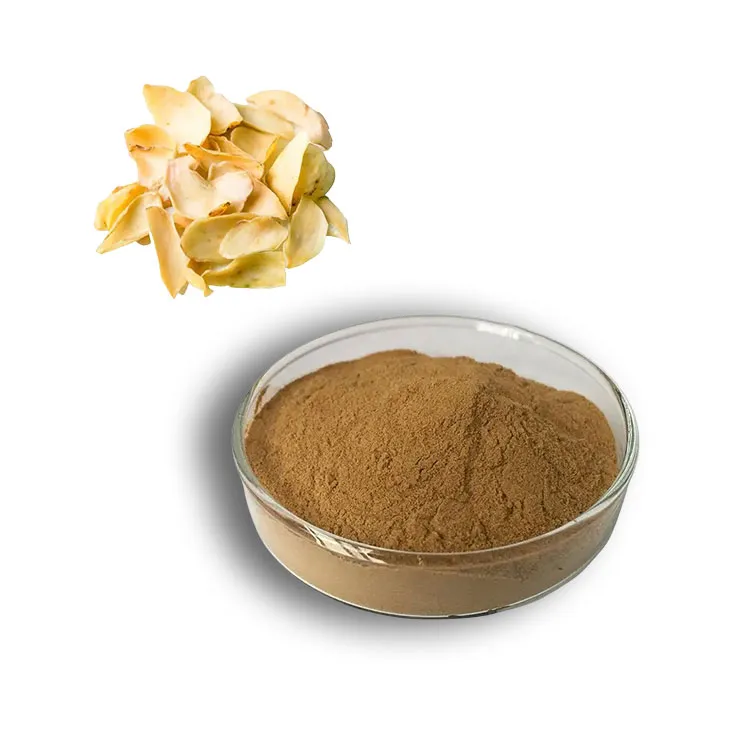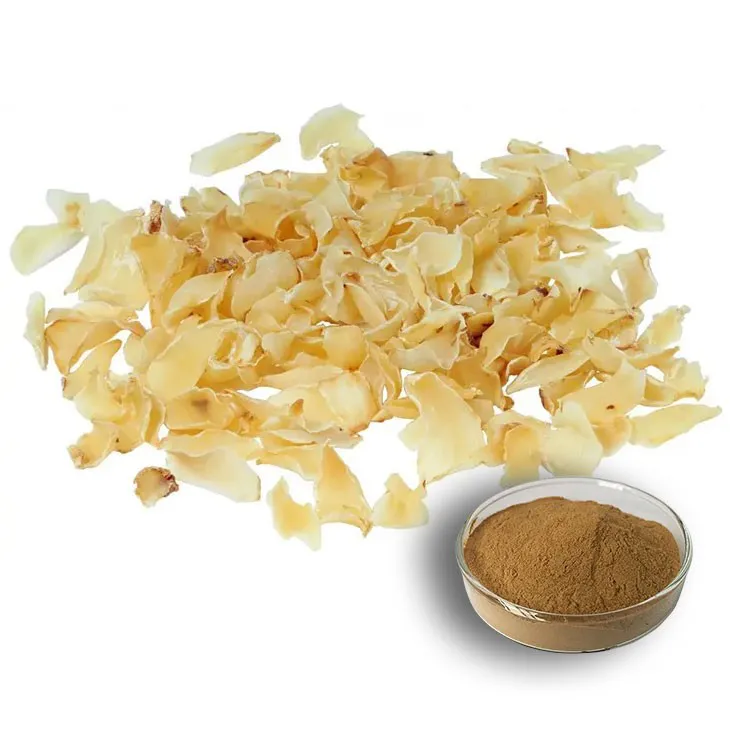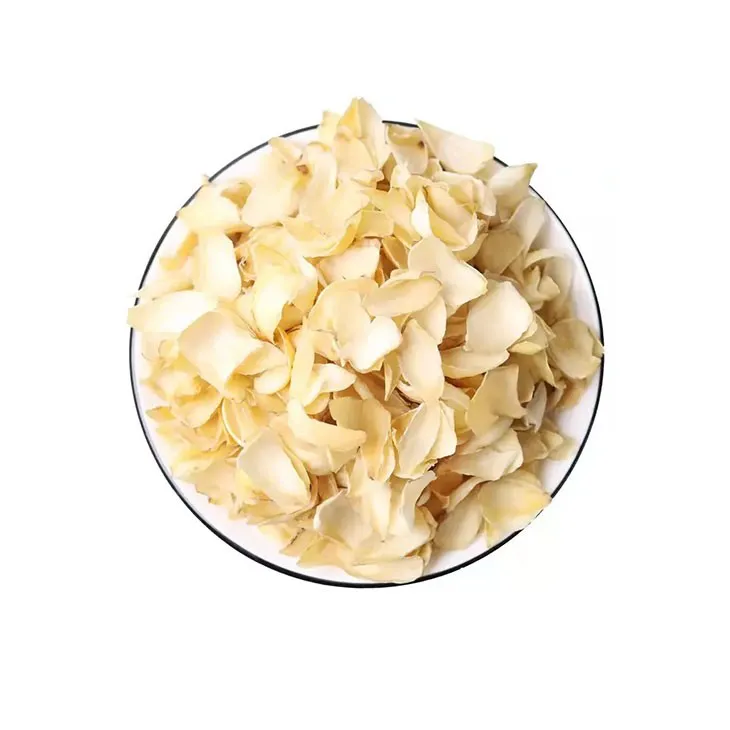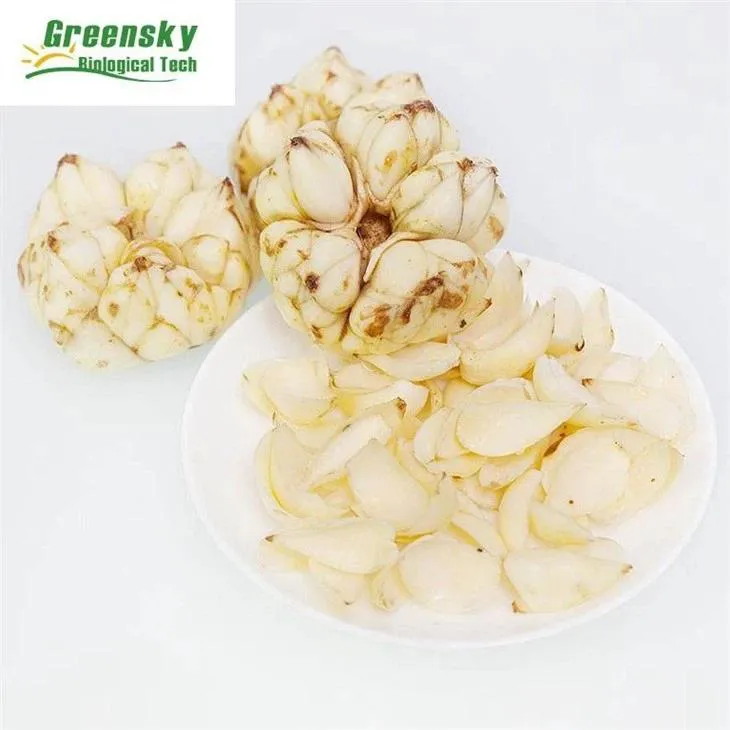- 0086-571-85302990
- sales@greenskybio.com
How do lily extract manufacturers formulate strategies to introduce new products to the market?
2024-12-19

1. Introduction
In the highly competitive market of Lily extract products, manufacturers are constantly striving to introduce new products successfully. This process involves a series of well - planned strategies that cover multiple aspects from understanding market demand to marketing promotion.

2. Understanding Market Demand
Market research is the foundation for new product introduction. Lily extract manufacturers need to conduct in - depth research to fully understand market demand.
2.1 Analyzing Consumer Trends
- Cosmetics industry: In recent years, consumers have shown a growing preference for natural and organic ingredients in cosmetics. For Lily extract manufacturers, this means that they need to focus on the potential of lily extract as a natural ingredient in skincare products. For example, lily extract may have properties such as moisturizing, anti - aging, and whitening, which are highly sought - after by consumers. By tracking the latest consumer trends in the cosmetics industry, manufacturers can develop new lily - extract - based cosmetics products that meet these demands. - Food industry: There is an increasing trend towards healthy and functional foods. Lily extract, with its potential health benefits such as antioxidant and anti - inflammatory properties, can be incorporated into various food products. Manufacturers need to study how consumers are increasingly interested in products like functional beverages, health - promoting snacks, etc., and find ways to introduce lily extract into these food categories.
2.2 Identifying Potential Applications
- Pharmaceutical research: Lily extract may have certain pharmacological activities. Manufacturers should keep an eye on the latest research findings in the pharmaceutical field. For instance, if there are studies indicating that lily extract can be used in the treatment of certain diseases or as a complementary therapy, they can explore the development of new products for the pharmaceutical market. This could involve collaborating with pharmaceutical research institutions to conduct further studies and develop lily - extract - based drugs or health supplements. - Nutraceuticals: The market for nutraceuticals is expanding rapidly. Lily extract, rich in nutrients and bioactive compounds, can be a valuable ingredient in this area. Manufacturers need to understand the specific requirements and trends in the nutraceutical market, such as the demand for products with specific health claims like improving immunity or enhancing cardiovascular health. They can then formulate lily - extract - based nutraceutical products accordingly.

3. Quality Control and Standardization
Quality is the key to winning market trust and ensuring product success.
3.1 Ensuring Purity
- Lily extract manufacturers should implement strict raw material selection processes. They need to source high - quality lilies from reliable suppliers. For example, they can establish long - term partnerships with lily growers who follow good agricultural practices. This ensures that the lilies used for extraction are free from contaminants such as pesticides, heavy metals, and harmful microorganisms. - Advanced extraction techniques should be employed to separate and purify the active ingredients in the lily. This may involve using techniques like supercritical fluid extraction or chromatography to obtain a high - purity lily extract. By ensuring purity, manufacturers can provide products that are safe for consumers and meet the high standards of different industries.
3.2 Verifying Efficacy
- In - house testing: Manufacturers should have their own quality control laboratories where they can conduct various tests on the lily extract. These tests can include assays to determine the content of active ingredients, as well as in - vitro experiments to evaluate the biological activities of the extract. For example, they can test the antioxidant activity of the lily extract using methods like the DPPH assay. - Collaboration with external research institutions: To further verify the efficacy of lily extract, manufacturers can collaborate with universities or independent research laboratories. These external partners can conduct more comprehensive and in - depth studies, such as animal experiments or clinical trials (if applicable). The results of these studies can provide strong scientific evidence for the efficacy of the lily extract, which is crucial for marketing the new product.
3.3 Meeting Regulatory Standards
- Different industries have different regulatory requirements for lily extract products. In the cosmetics industry, for example, there are regulations regarding ingredient safety, labeling, and product claims. Manufacturers need to ensure that their new lily - extract - based cosmetics products comply with these regulations. This may involve registering the product with relevant regulatory authorities and providing accurate ingredient lists and safety information. - In the food and pharmaceutical industries, the regulatory requirements are even more stringent. For food products containing lily extract, manufacturers need to meet food safety standards, such as those related to maximum residue limits of pesticides and heavy metals. In the pharmaceutical industry, new lily - extract - based drugs or supplements need to go through a rigorous approval process. Manufacturers must be well - informed about these regulations and ensure that their products meet all the necessary requirements.

4. Marketing Strategies
Effective marketing is essential for promoting new lily extract products in the market.
4.1 Online Promotion
- Website development: Manufacturers should have an attractive and informative website for their lily extract products. The website should provide detailed product information, including the origin of the lily, the extraction process, product features, and benefits. It can also include customer testimonials and scientific research findings related to the lily extract. For example, a manufacturer could feature a section on their website dedicated to the latest research on the health benefits of lily extract in skincare. - Social media marketing: Social media platforms offer great opportunities for promoting lily extract products. Manufacturers can create social media accounts on platforms like Facebook, Instagram, and Twitter. They can post engaging content such as product photos, videos, and articles about the uses and benefits of lily extract. For instance, they could post a video demonstrating how to use a lily - extract - based skincare product or share an article on the nutritional value of lily extract in food. Social media advertising can also be used to target specific consumer groups based on demographics, interests, and behavior. - Online marketplaces: Selling lily extract products on popular online marketplaces like Amazon or Alibaba can increase product visibility. Manufacturers need to optimize their product listings on these platforms, including providing high - quality product images, detailed descriptions, and competitive pricing. They can also take advantage of the customer review and rating systems on these marketplaces to build trust and credibility.
4.2 Cooperation with Relevant Industries
- Cosmetics companies: For lily extract manufacturers targeting the cosmetics market, partnering with well - known cosmetics companies can be a very effective strategy. For example, a lily extract manufacturer can supply its high - quality extract to a major cosmetics brand. This partnership can benefit both parties. The cosmetics company can use the lily extract to develop new and innovative skincare or makeup products, while the lily extract manufacturer can gain access to the cosmetics company's extensive distribution channels and customer base. - Food manufacturers: In the food industry, collaborating with food manufacturers can help lily extract manufacturers introduce their products into a wider range of food products. For instance, a lily extract manufacturer could work with a beverage company to develop a new functional beverage containing lily extract. This cooperation can leverage the food manufacturer's production capabilities and marketing resources to promote the new lily - extract - based food product. - Pharmaceutical and nutraceutical companies: In the pharmaceutical and nutraceutical sectors, partnerships can be crucial for bringing lily - extract - based products to market. By collaborating with pharmaceutical companies, lily extract manufacturers can participate in the development of new drugs or health supplements. Similarly, working with nutraceutical companies can help in formulating and marketing lily - extract - based nutraceutical products.
4.3 Participation in Trade Shows
- Industry - specific trade shows: Participating in trade shows related to the cosmetics, food, or pharmaceutical industries can provide lily extract manufacturers with valuable opportunities to showcase their new products. For example, at a cosmetics trade show, manufacturers can set up an attractive booth to display their lily - extract - based skincare products. They can also conduct product demonstrations and provide samples to potential customers. This allows them to directly interact with industry professionals, including cosmetics brand owners, distributors, and retailers. - International trade shows: International trade shows offer a platform for lily extract manufacturers to reach a global market. By participating in international trade shows, manufacturers can showcase their products to international buyers, explore new export markets, and establish international business relationships. For instance, at an international food trade show, a lily extract manufacturer from one country can meet with food companies from different countries interested in incorporating lily extract into their products. - Networking and knowledge sharing: In addition to product promotion, trade shows also provide opportunities for networking and knowledge sharing. Manufacturers can meet with other industry players, including suppliers, competitors, and research institutions. They can exchange ideas, learn about the latest industry trends, and stay updated on new technologies and regulations. This networking can be beneficial for future business development and strategy formulation.

5. Conclusion
In conclusion, lily extract manufacturers need to formulate comprehensive strategies to introduce new products to the market. By understanding market demand, ensuring quality control and standardization, and implementing effective marketing strategies, they can increase the chances of success for their new products. However, in the ever - changing market environment, manufacturers also need to be flexible and adaptable, constantly adjusting their strategies to meet new challenges and opportunities.
FAQ:
1. What are the key factors in understanding market demand for lily extract?
To understand market demand for lily extract, manufacturers need to consider several key factors. Firstly, consumer trends are important. For example, in the cosmetics industry, the increasing preference for natural and organic ingredients is a trend that can drive the demand for lily extract. Secondly, they should look at the preferences of different consumer groups. Some consumers may prefer lily extract in skincare products due to its potential moisturizing properties, while others may be interested in its use in food for its flavor or health benefits. Thirdly, analyzing potential applications in various industries is crucial. In the food industry, it could be used as a flavor enhancer or in dietary supplements. In the pharmaceutical industry, its potential medicinal properties may be explored. By studying these aspects, manufacturers can better understand market demand.
2. How can lily extract manufacturers ensure quality control during the production of new products?
Manufacturers can ensure quality control in several ways. They need to start with high - quality raw materials. This means carefully selecting the lilies used for extraction, ensuring they are grown in suitable conditions without excessive pesticide use. During the extraction process, strict manufacturing procedures should be followed. This includes using appropriate extraction methods to ensure the purity of the lily extract. For example, using advanced extraction techniques like supercritical fluid extraction can help maintain the integrity of the active compounds. Regular quality testing is also essential. Testing for purity, potency, and the absence of contaminants should be carried out at different stages of production. This can be done in - house or by using accredited third - party laboratories.
3. What are the effective online promotion strategies for lily extract new products?
Online promotion for lily extract new products can be done through various strategies. Social media marketing is very effective. Manufacturers can create engaging content on platforms like Instagram or Facebook, highlighting the benefits and uses of the lily extract. They can also use influencers in the health, beauty, or food sectors to promote their products. Another strategy is content marketing. This involves creating blog posts, videos, or infographics about lily extract, such as its origin, extraction process, and potential applications. Search engine optimization (SEO) is also crucial. By optimizing product descriptions and website content with relevant keywords, the products can rank higher in search engine results. Additionally, email marketing can be used to target existing customers and potential leads, providing them with information about new lily extract products.
4. How important is cooperation with relevant industries for lily extract manufacturers?
Cooperation with relevant industries is highly important for lily extract manufacturers. In the cosmetics industry, partnering with well - known beauty brands can give the lily extract wider exposure. These brands already have an established customer base, and by incorporating lily extract into their products, it can reach more consumers. In the food industry, collaborating with food manufacturers or supplement companies can open up new markets. For example, if a food manufacturer is looking for new natural flavorings or health - enhancing ingredients, a partnership with a lily extract manufacturer can be mutually beneficial. Cooperation also allows for sharing of resources and knowledge. The lily extract manufacturer can learn about market trends and consumer demands from their partners, while the partners can benefit from the manufacturer's expertise in lily extract production.
5. What are the benefits of participating in trade shows for lily extract manufacturers?
Participating in trade shows offers several benefits for lily extract manufacturers. Firstly, it provides an opportunity to showcase their new products directly to potential customers, including buyers from different industries such as cosmetics, food, and pharmaceuticals. This face - to - face interaction allows for immediate feedback and the building of business relationships. Secondly, trade shows are a great platform for networking. Manufacturers can meet with suppliers, competitors, and potential partners. They can learn about the latest industry trends, new technologies, and emerging market demands. Thirdly, it helps in brand building. A well - presented booth at a trade show can enhance the brand image of the lily extract manufacturer, making it more recognizable and trustworthy in the market.
Related literature
- New Product Introduction in the Botanical Extract Industry: A Case Study of Lily Extract"
- "Market Strategies for Herbal Extracts: Focus on Lily Extract"
- "Quality Assurance in Lily Extract Production for New Product Launches"
- ▶ Hesperidin
- ▶ Citrus Bioflavonoids
- ▶ Plant Extract
- ▶ lycopene
- ▶ Diosmin
- ▶ Grape seed extract
- ▶ Sea buckthorn Juice Powder
- ▶ Fruit Juice Powder
- ▶ Hops Extract
- ▶ Artichoke Extract
- ▶ Mushroom extract
- ▶ Astaxanthin
- ▶ Green Tea Extract
- ▶ Curcumin
- ▶ Horse Chestnut Extract
- ▶ Other Product
- ▶ Boswellia Serrata Extract
- ▶ Resveratrol
- ▶ Marigold Extract
- ▶ Grape Leaf Extract
- ▶ New Product
- ▶ Aminolevulinic acid
- ▶ Cranberry Extract
- ▶ Red Yeast Rice
- ▶ Red Wine Extract
-
Medicinal Marshmallow Extract
2024-12-19
-
Kupilu Extract
2024-12-19
-
Acerola Extract
2024-12-19
-
Plantain extract
2024-12-19
-
Artichoke Extract
2024-12-19
-
Reishi mushroom extract
2024-12-19
-
Pueraria Lobata Extract
2024-12-19
-
Maca Extract
2024-12-19
-
Quercetin
2024-12-19
-
Lotus leaf extract
2024-12-19





















